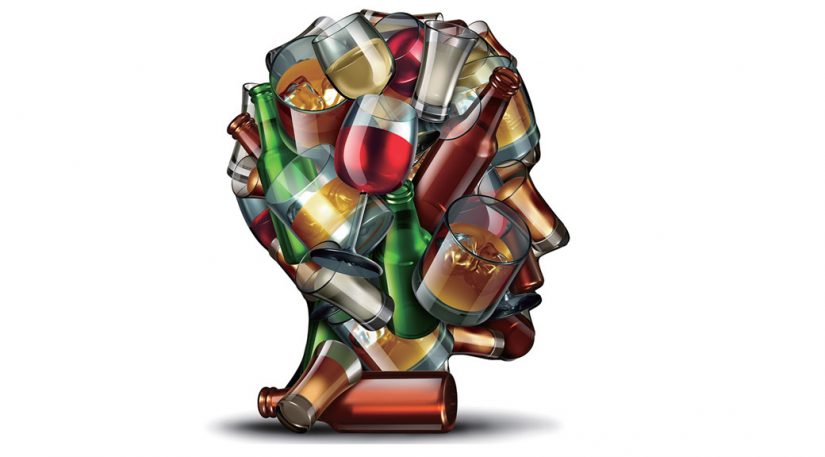How alcohol destroys the brain
We often hear that alcohol can be good for your health. The media happily replicate the results of studies which conclude that a glass of wine a day reduces the risk of a heart attack, and that a couple of drinks or drinks in the evening are associated with a longer life expectancy. That’s not bad, but what does alcohol do to the brain?
Well, when it comes to the supercomputer inside our skull, the news is not so bright at all. SPECT studies conducted by the Amen Clinics, which provide material for the world’s largest database of functional brain scans, clearly demonstrate just how destructive alcohol is to the brain. Here are the top 5 worst negative effects.
1. Shrinking brain volume
According to a 2008 study, people who drink as little as 1-7 servings a week have smaller brains (literally) than teetotalers .
The same study found that those who drink more (2 or more servings a day) have even more brain shrinkage. And these changes begin quite early: the authors of the 2020 study recorded a decrease in brain volume in men and women aged 39-45 , those who abused alcohol at a young age (12-17) also lost more in brain volume over time .
And when it comes to the most important organ, size does matter.
2. Deteriorating blood flow to the brain
Scans of the brains of alcohol abusers clearly show a decrease in overall blood flow to the brain, and this is critical for its healthy functioning. Reduced blood flow can lead to a range of serious problems, including confusion, impaired ability to concentrate and make decisions, impulsivity and more. It is particularly important to know that low blood flow to the brain is a major predictor of Alzheimer’s disease.
SPECT scans of alcohol abusers
3. hippocampal atrophy
Even 1-2 glasses of wine a day – which is considered “moderate” consumption – lead to hippocampal atrophy in a long-term (30-year) follow-up of 550 women and men .
The hippocampus, recall, is involved in the mechanisms of emotion formation, memory consolidation (i.e. the transfer of short-term memory to long-term memory), spatial memory, essential for navigation; its atrophy is also one of the early diagnostic signs of Alzheimer’s disease (Wiki).
People who drank 4 or more servings of alcohol a day had a 6-fold increased risk of atrophy of this critical brain area (compared to teetotalers), while “moderate” drinkers had a 3-fold increased risk. The researchers noted that they found no protective effects from small doses of alcohol.
Alcohol abuse is also associated with changes in the microstructure of the corpus callosum, the plexus of nerve fibres that connects the left and right hemispheres of the brain and allows them to interact effectively.
4. Reduced production of new brain cells
Excessive alcohol consumption reduces the generation of new brain cells, especially in the hippocampus. In a study in monkeys that consumed alcohol, the number of new brain cells generated was reduced by 58% and their (brain cell) survival rate was reduced by 63%.
5. Increased risk of dementia
Medium- and high-dose drinkers – as compared to non-drinkers and low-dose drinkers – are 57% more likely to develop dementia . Alcohol can literally drive you insane.
There’s more.
For heavy drinkers, the negative effects on the brain can be even more pronounced and varied. A wealth of scientific evidence, including the results of a 2016 review , suggests that certain areas of the brain, including the hippocampus and prefrontal cortex (associated with decision-making, self-control, planning, etc.), suffer the most damage from long-term alcohol abuse.
Brain rehabilitation programme
Although the above observations paint a pretty grim picture, you should know that some effects are reversible. Researchers at the Amen clinics have found that even the brains of alcoholics retain the potential to recover. SPECT scans of patients before and after undergoing a rehabilitation programme show a significant improvement in blood flow and increased brain activity.
To help your own brain recover, lead a healthy lifestyle:
- stop poisoning your beloved brain with alcohol,
- eat a diet rich in nutrients,
- avoid sugar in all its forms and manifestations,
- Do away with anything that worsens circulation, including excessive caffeine intake and smoking,
- Learn to get rid of spontaneous negative thoughts.

